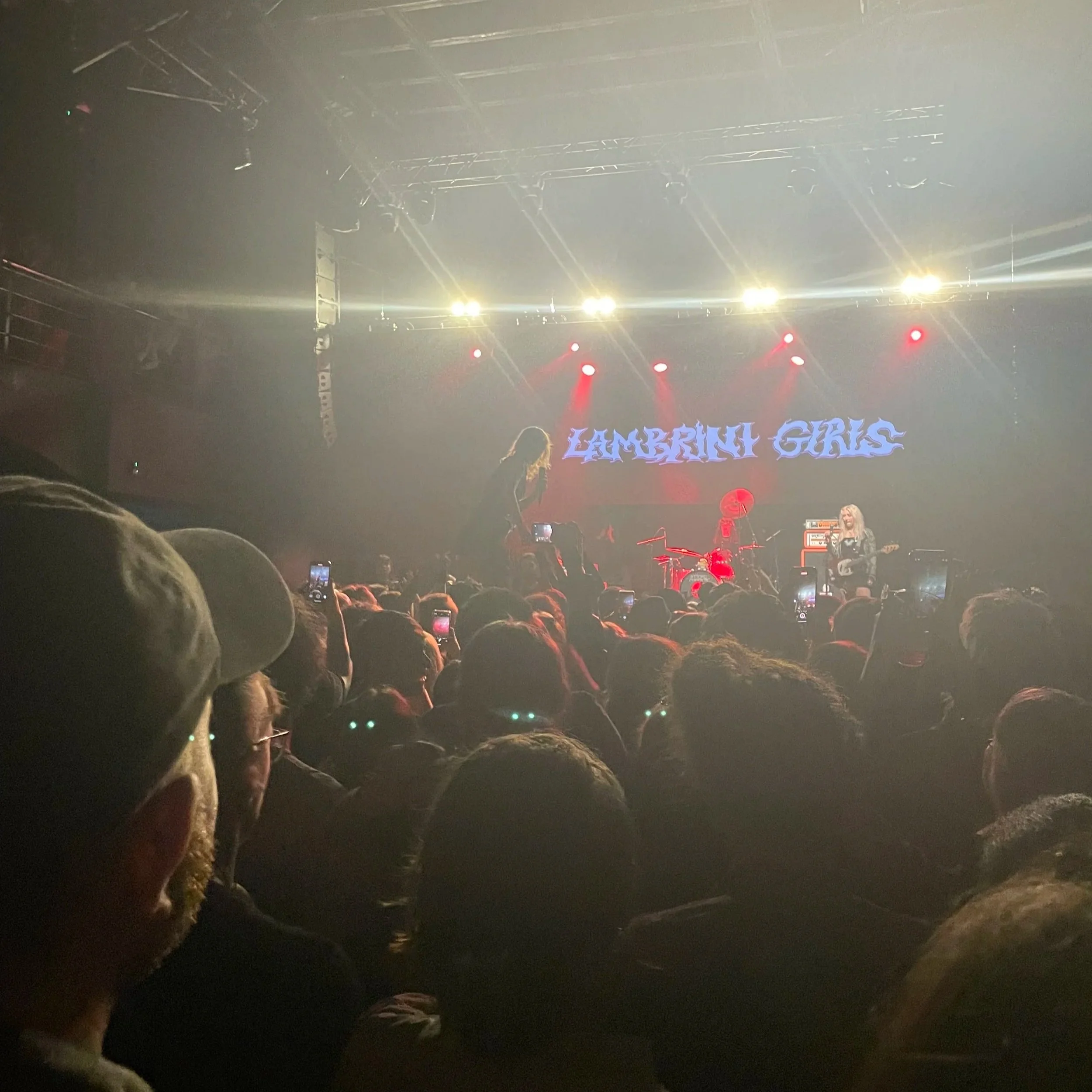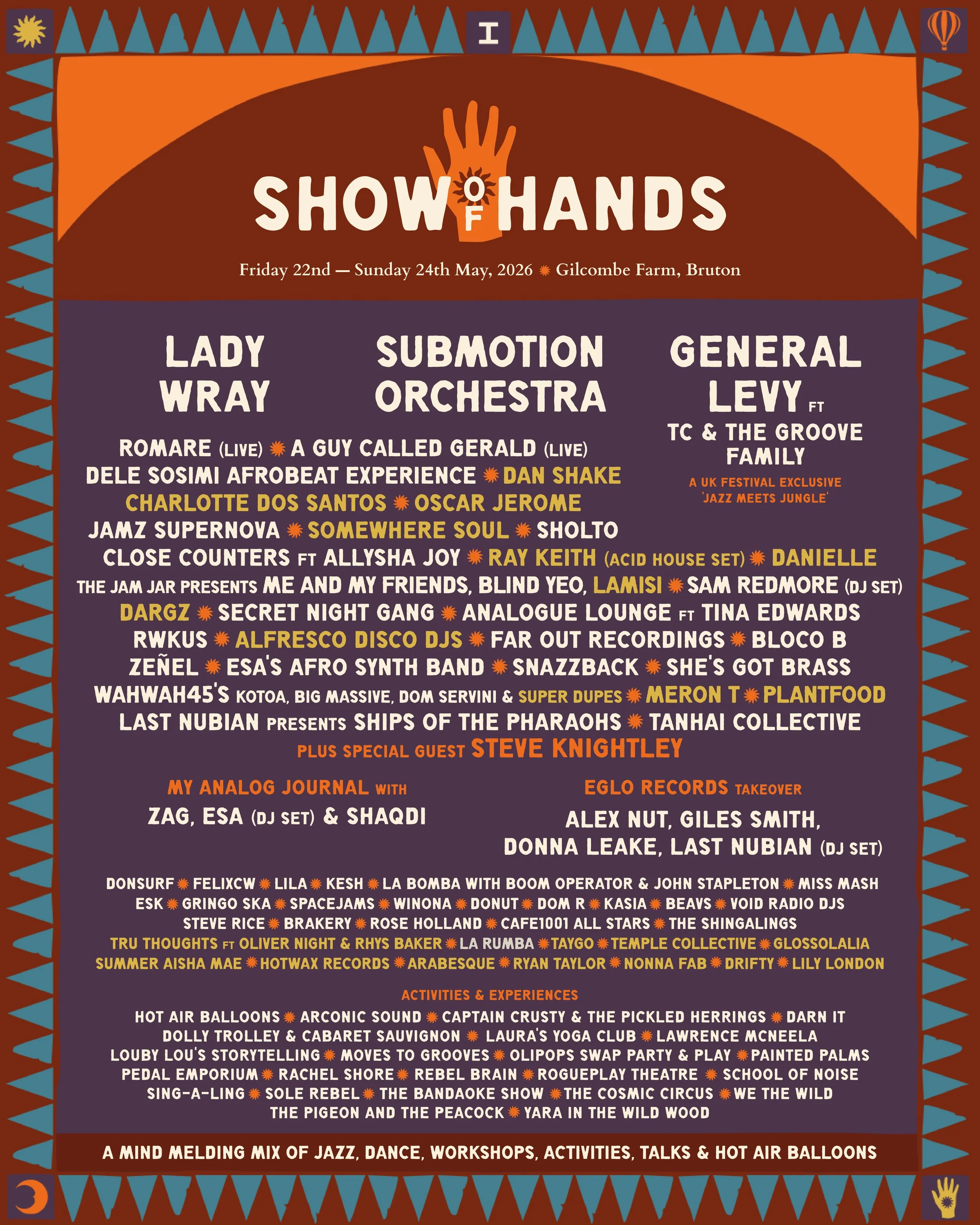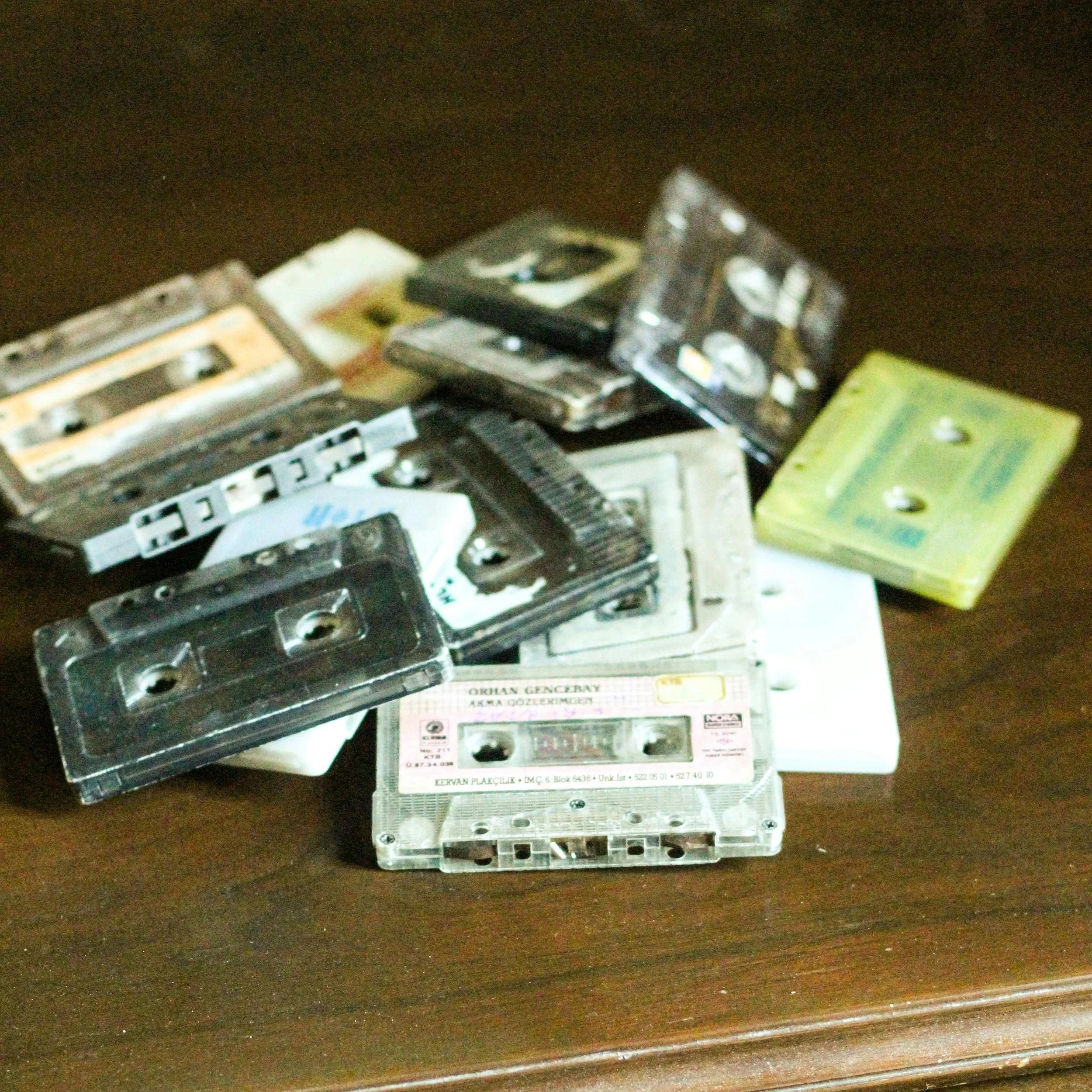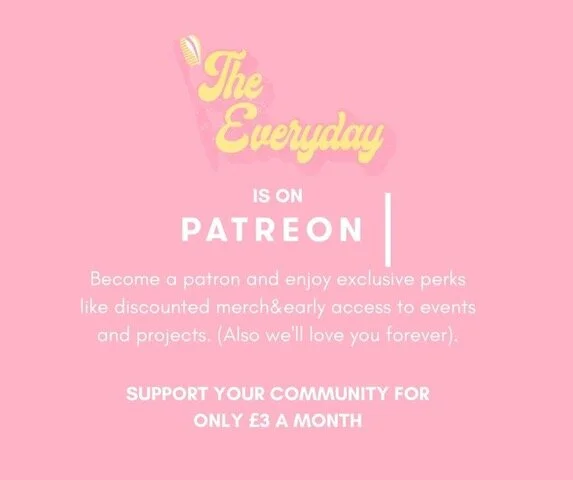Talking to: Bawrut
Bawrut, the Madrid-based Italian producer, DJ and stalwart of Ransom Note Records, has been a central part of European club culture and the continent-wide festival scene for a number of years now, with sets under his belt at the likes of Nuits Sonores, c/o POP, Love International and opening for LCD Soundsystem at Barcelona’s Sonar Festival in 2018. His numerous EP releases traverse genres and borders and have received support from big names like Sven Vath, Andrew Weatherall, Erol Alkan and Axel Boman.
In September Bawrut announced the release of his debut album ‘In The Middle’. Described as ‘a striking eleven-track journey through sunset pop, electronic melancholia and delusive migrations taking place around the Mediterranean’, ‘In The Middle’ is a product of the times we find ourselves in. The project is an ambitious and hopeful call in which Bawrut asks us to consider questions around identity, the ‘luck of the draw’ of being born in the west, how migration has been intrinsic to creating the beauty and diversity of European culture and the necessity of moving beyond the current atmosphere of polarisation and go beyond the rigidity of notions of nationalism.
Working with a wide range of musicians who represent the myriad of different threads feeding into European music, the album weaves Balearic beats, electro and tight production with elements of flamenco, Arabian music and Neopolitan lyrics to showcase the diversity of experience we should consider when asking ‘What does it mean to be European?'‘. The first single ‘Crossing for a Golden Blanket’ is perhaps the most hard hitting and political moment on the album, exploring the hope and uncertainty refugees face crossing the sea to the shores of the promised land of Europe.
We caught up with Bawrut just before In The Middle’s 11th November release date and as well as exploring his musical roots and career, we delved deeper into how the album came to be, the issues it explores, the important role art plays in society, and why its time for club culture to reclaim it’s conscious and political roots.
How are you? Where are you at the moment?
I’m in Madrid right now finalising the album campaign, working on new music and enjoying the warm Spanish autumn.
Tell us in your own words about the music that you make.
I make electronic music with a dance output - is that an acceptable definition? I honestly don’t know if I make house or techno or whatever but I am usually driven by my personal feelings when I work on it. It could be just the need to dance or something more related to the messages I want to express - and how to do that in a genre which usually doesn’t use a lot of lyrics.
Your new album In The Middle is about movement and migration around the Mediterranean, but also about the notion of a moving identity. Tell us more about what the political and philosophical message is that you are trying to get across with the album and what inspired this.
Every song has been developed to explore particular feelings (two of them were written during the pandemic months) but the album basically has four huge matters it explores:
IDENTITY. Nowadays everybody talks about identity, heritage and traditions, but just looking twenty or forty years back we didn’t understand what this word meant really. Especially in the Mediterranean area we are a product of different cultures and people who have met here for a long time. Just referring to the identities of the last two generations shows a lack of knowledge of history or is simply playing a dirty game for few votes or likes.
MIGRATION. It's not so difficult nowadays to understand why people leave their countries. Unfortunately the recent images from Kabul airport showed the desperation and the recklessness of the people who tried to escape from a risky situation. If we don’t want to accept migrants, especially in a wealthy and old Europe, and if we don't understand how our society needs them, it’s a greedy and myopic habit. What’s happening in the Mediterranean and on the Balkan route is a shame for all human beings, especially for our beloved Europe. I’m proud to be European but not of it’s governments.
DANCE AND GATHERINGS. The act of dance is a very old form, maybe the oldest form human beings as a society used to express themselves. What’s happened here throughout the pandemic is a total denial of its importance. Governments just saw a bunch of kids and closed all the places where they could gather without considering the idea of safety measures when it was possible. Instead of staying on our side and condemning plague raves run by rich and egomaniac famous DJs the music business turned it’s head away, allowing a shitstorm to hit all the members of this community.
POLARISATION: I think it is better to study and understand the dynamics of facts, history and how things happen rather than setting ourselves on a side of the field and shouting to our opponents that they are wrong. Today I see good ideas ruined by people who don’t accept the fact that we live in a multicultural society. We want diversity, but then when we face someone’s opinion which doesn’t fit with ours we don’t discuss it but we fight it. Or just don’t listen to it. It’s a pity.
In your opinion, what is art’s role in society (in particular in music)?
I consider myself a craftsman, someone with a decent technique who’s doing his best to make good virtual objects which can help and heal our day to day. Besides that I guess art is something very important to remind us we are not just daily workers, but also human beings with feelings and when we want to express it we can make art.
In The Middle artwork
Culture and music has become a product - this is ok if an artist can make money out of it and live on it and work better for future projects. But on the other hand it can become just something to buy and consume without any layers behind it and then it starts to lose it’s proper value. During the pandemic culture and music became the lamb our society was ready to sacrifice in the name of collective wellness. It was a very beautiful and nice thought if this meant unconditional support was given to artists and musicians, but instead was simply a way to forget about culture makers and just to enjoy books, movies, music and all the arts without supporting artists.
Lots of people think music should be fun escapism, especially dance music. Do you think dance music can change how individuals think and act? Can it make a difference to the world?
We are living in a stressful and consumerist society and we need fun and escapism. Western societies force people to compete for a better and richer future, so we need safe places where we can take refuge and avoid all these distorted realities. Clubs and music help this vision, especially in the real life more than the virtual one. But if all of the music business is just a product based on sterile music it is difficult to discover a place where we can find ourselves without being 100% consumers of a product. If we just could put the focus on avoiding this it would be a great step.
Most people don’t want to know if Techno was born in Detroit or in Dusseldorf, they just want to have a couple of hours to be themselves without boundaries. We, as a club/dance music community, have to find a way to drive our audience to a “conscious” direction, if it’s possible, and create places which can stimulate some issues.
It’s true that disco, house and techno music came from and explored political issues for a long time, which became nonexistent when the music business stole their messages. Since this game is almost forty years old I guess it’s time for a comeback, to reflect our messages of fear or hope in the music we make. The man-machine has lost its soul - let’s bring it back.
Tell us some more about the collaborators on In The Middle and why you chose them?
I wanted to have some vocal features from the Mediterranean area, with “local” languages. I have a real relationship with Cosmo, Chico Blanco and Liberato and asking them for a collaboration wasn’t so difficult. We respect each other and even though Cosmo and Liberato - Italian and Neapolitan speakers - are quite famous in Italy there wasn’t any problem making it happen.
It wasn’t easy to find an Arab collaborator just because I wasn’t into the North African/Levantine music scene. I tried twice before finding Manar (the vocalist on Glitter) and I’m very happy to have done this collaboration with her. She’s ace!
Are there any particular tracks which are close to your heart?
Crossing For a Golden Blanket still gives me goosebumps, and it’s quite easy to understand. Also Tisno Memoriae - it was written during the pandemic and my head was in Croatia, in that beautiful place, especially Tisno. I used field recordings I made there and I hope it will also heal all those people who spent great moments during their summers in one of the four festivals organised there. Also Sol en la Cara is very touching for me and De Amor de Dios a Candela as well. Every song has a couple of layers behind it.
Tell us about your musical upbringing. Has music always been a big part of your life? Who were your influences when you were younger?
I guess that if I’ve arrived here and I’m 43 music has probably always been there. Everyone has a particular relationship with music shaped by the way we are. I wasn’t born into a musical family but I grew up listening to my mum and dad’s record collection. My dad’s German gramophone vinyls are still there in Italy and if I listen to Emil Giles it is more for a nostalgic memory rather than to examine his or Chopin’s skills. The same goes for my mum’s pop radio listening or my brother's records.
I started listening to rap and hip hop when I was fourteen as a rebellious act, then I moved to disco and house with my friends Marco & Marco. I was lucky to have Christian Zingales, a brilliant Italian music journalist, to shape my club taste - reviewing tons of new releases every month and always trying to avoid the moment's hype. These influences helped me when I moved to Spain and I started from scratch as Bawrut. I already knew what I had to listen to and where.
Who have you most enjoyed working with / playing alongside in your music career so far?
I have a special feeling shared with KiNK. You can’t really consider us friends but we respect each other and we like to play back-to-back. He forces my more energetic house/techno side and we combine very well.
Working for the first time as a producer on this album with four amazing artists was very inspiring and opened me up to some composer/producer options which I’d never considered before.
What’s exciting you at the moment on the music scene?
Those who take risks making something at least personal and different. Music genre revival is very boring to me.
What is next for you?
I have some dubs / reworks of the originals which I will release as the club side of the album, plus some new club EPs, but I still don’t have a clear idea what I’m going to do and when. I usually get inspired by playing and dancing in clubs and without this experience it’s been tough working on something new.
In The Middle is out now to buy and stream on Ransom Note Records.








